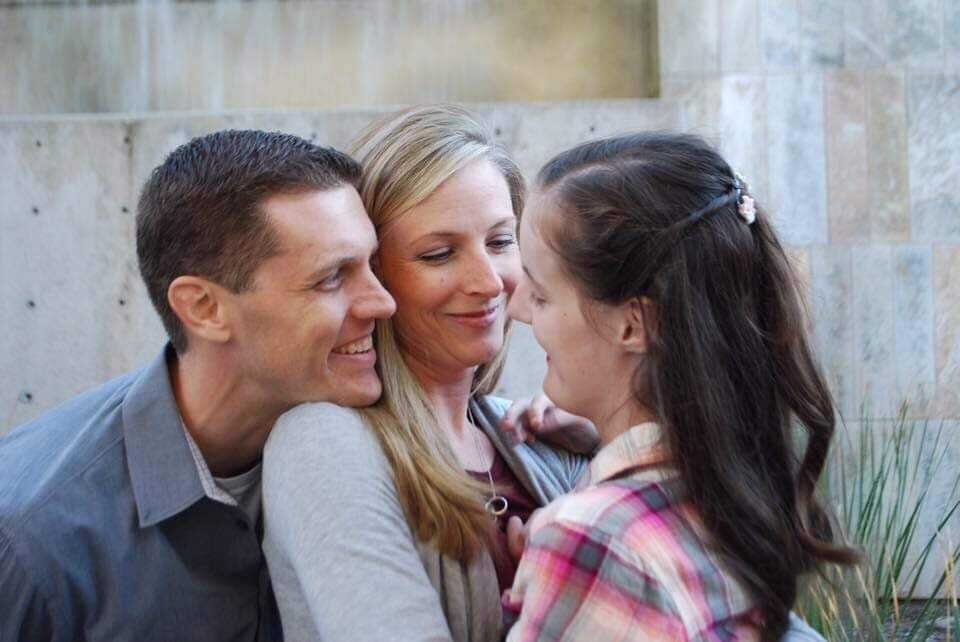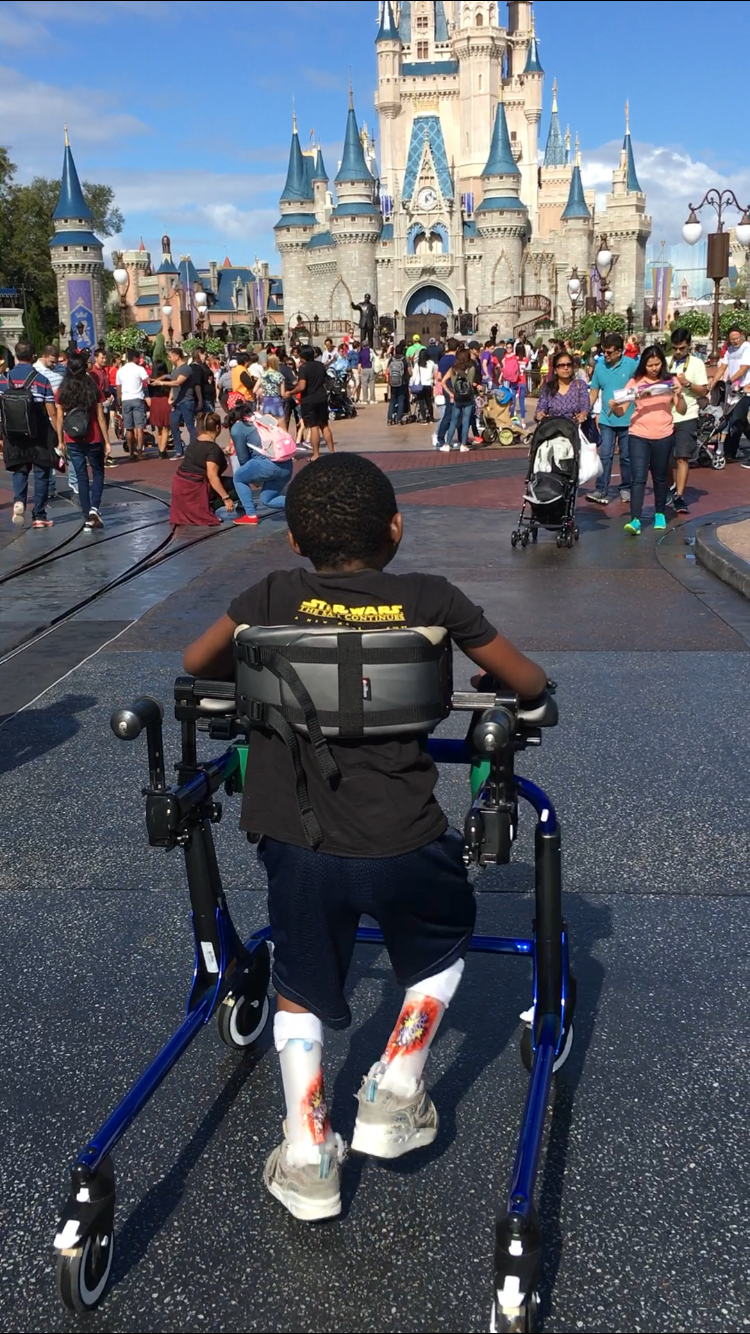Dear Senator Sinema,
16-year-old Taryn and her mom and dad embrace.
My daughter, Taryn, is 16. She loves to go camping, she loves her family, and she gives great hugs. She was also born with very complex medical needs, as well as cognitive and physical disabilities. You may remember meeting Taryn and me last March when we had the opportunity to speak during a constituent call over Zoom. In that conversation, I explained how I navigated each day with gratitude for the blessing of my daughter, and with worry about managing all the care she needs to ensure she has a fulfilling life. I shared that my husband and I worked tirelessly together to create a safe and happy home, and provided full-time care for Taryn. While we were able to get some in-home services through Arizona’s Home and Community-Based Services programs (HCBS), there is a shortage of home-care providers. Many families will tell you the same.
Taryn and her father
A lot has changed for my family since we spoke. My fears have been drastically compounded by the unexpected passing of my husband, Taryn’s father, in late August. I’m suddenly faced with being a single parent. We’ve lost our family’s main financial provider and his job benefits, and now I have to figure out what life will look like for Taryn and myself going forward. Without my partner, I know I will need to rely on Home and Community-Based Services more than ever, yet I also know the care workforce is in a state of crisis, made worse by the COVID-19 pandemic. Without full funding for the Better Care Better Jobs Act in the Build Back Better reconciliation bill, Taryn and I, along with thousands of families like ours, will be left behind to try to endure without access to critical life-saving care.
When we met with you last March, you assured us that you knew good policy for HCBS was important. You said that we could count on you, and I believed you. But now, without any explanation, you are withholding support for the very policies my family needs. I struggle to understand what part of this policy you have an issue with, because when I look at the financial analysis, it makes good fiscal sense over the next 10 years. The Better Care Better Jobs Act and the Build Back Better agenda will create jobs and allow those with disabilities and the elderly to get the care they need in their own homes and communities (which costs significantly less than institutional care). President Biden’s caregiving infrastructure plan will also allow caregivers to return to work, and it will contribute to the next generation of workforce development.
Dawn and Taryn in a zoom meeting with Senator Sinema, members of Little Lobbyists, and her staff.
I know there is no such thing as a perfect policy, but your responsibility is to create and pass policies that improve lives in Arizona. As do many Arizonans, I believe the Build Back Better plan does just that. To remind you, roughly 65% of Arizona voters support the 3.5 trillion Build Back Better plan, with over 80% of your constituents supporting investment in Long Term Care. Continuing to stall threatens the lives of Arizonans with disabilities and Arizona’s elderly; that’s cruel and unacceptable. I urge you to consider who you are harming by not supporting this plan and remember that you represent Arizona voters first.
As I have said before, I am available to talk with you anytime about the effects of policy on my family’s day-to-day life. Finally, I leave you with the words my daughter carefully programmed into her communication device last March to share with you. Taryn told you, “Your work is important.” Please remember that, and vote for the support our families need.
Your constituent,
Dawn Bailey
Registered Voter,
Chandler, AZ



















